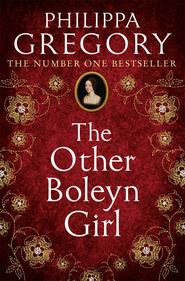По всем вопросам обращайтесь на: info@litportal.ru
(©) 2003-2025.
✖
The Little House
Автор
Год написания книги
2018
Настройки чтения
Размер шрифта
Высота строк
Поля
‘I’ve always lived in town,’ Ruth said. ‘And my job means everything to me. I’m the only woman news producer on the station – it’s a real responsibility, and this week I broke a national story –’ she glanced at Patrick. ‘We scooped you,’ she reminded him.
He shrugged. ‘Radio is always quicker than telly.’
‘We were going to travel…’ she reminded him. It was an old promise. Ruth was an American child – her father a concert pianist from Boston, her mother an Englishwoman. They had died in the quick brutality of a road accident on a winter visit to England when Ruth was only seven years old. Her mother’s English family had taken the orphaned girl in, and she had never seen her home again. When Ruth and Patrick had first met, he had found the brief outline of this story almost unbearably moving and had promised Ruth that they would go back to Boston one day, and find her house. Who knew – her childhood toys, her books, her parents’ things might even be in store somewhere, or forgotten in an attic? And part of the chasm of need that Ruth always carried with her might be filled.
‘We still can,’ he said quickly.
‘We’ll finish this bottle and then we’ll all go down and look at Manor Cottage,’ Frederick said firmly. ‘Take my word for it, Ruth, you’ll fall for it. It’s a little peach. Bags of potential.’
‘She’s not to be bullied,’ Elizabeth said firmly. ‘We might think it paradise to have the two of you on our doorstep, but if Ruth doesn’t want to live so close to us, she is allowed to say “no”.’
‘Oh, it’s not that!’ Ruth said quickly, fearful of giving offence.
‘It’s just the surprise of it,’ Patrick answered for her. ‘I should have warned her that you’ve had your eye on that for years and you always get your own way.’
‘Amen to that!’ Frederick said. The father and son clinked glasses.
‘But I like our flat,’ Ruth said.
Ruth borrowed a pair of Elizabeth’s Wellington boots for the walk, and her waxed jacket and her headscarf. She had not come prepared, because the after-lunch walk was always Frederick’s time alone with Patrick. Usually Elizabeth and Ruth cleared the lunch table, stacking the plates in the dishwasher, and then sat in the living room with the Sunday papers to read and Mozart on the hi-fi. Ruth had once gone with the men on their walk, but after a few yards she had realized her mistake. They strode along with their hands buried deep in their pockets, shoulder to shoulder in a silent enjoyable communion. She had delayed them at stiles and gates because they had felt bound to hold her hand as she clambered over them, or warn her about mud in gateways. They had kept stopping to ask if they were going too fast for her or if she was tired. Their very generosity to her and concern for her had told her that she was a stranger, and unwelcome. They wasted no politeness on each other. For each other they shared a happy, wordless camaraderie.
The next Sunday Frederick announced: ‘Time for my constitutional,’ and then he had turned to Ruth: ‘Will you come with us again, Ruth? It looks like rain.’
As she had hesitated, Elizabeth said firmly, ‘You two run along! I won’t have my daughter-in-law dragged around the countryside in the rain! Ruth will stay here with me and we can be cosy. We’ll kick our shoes off and gossip.’
After that, the two men always walked alone after lunch and Ruth and Elizabeth waited for them to return. There was no kicking off shoes. Elizabeth was a naturally formal woman, and they had no mutual friends for gossip. Ruth punctiliously asked after Miriam, Patrick’s elder sister, who was teaching in Canada. But Miriam was always well. Elizabeth inquired about Ruth’s work, which was filled with drama and small triumphs that never sounded interesting when retold, and asked after Ruth’s aunt, who had brought her up after the death of her parents. Ruth always said that she was well, but in truth they had lost contact except for Christmas cards and the occasional phone call. Then there was nothing more to say. The two women leafed through the newspapers together until they heard the dog scrabbling at the back door and Elizabeth rose to let him in and put the kettle on for tea.
Ruth knew that Manor Cottage mattered very much to everyone when she was invited on the walk, especially when Elizabeth walked too.
They went across the fields, the men helping the women over the stiles. They could see the Manor Cottage roof from two fields away, nestling in a little valley. The footpath from the farmhouse led to the back gate and into the garden. The drive to the farmhouse ran past the front door. There was a stream that ran through the garden.
‘Might get a trout or two,’ Frederick observed.
‘As long as it’s not damp,’ Elizabeth said.
Frederick had brought the key. He opened the front door and stepped back. ‘Better carry her over the threshold,’ he said to Patrick. ‘Just for luck.’
It would have been awkward and ungracious to refuse. Ruth let Patrick pick her up and step over the threshold with her and then put her down gently in the little hall and kiss her, as if it were their new house, and they were newlyweds, moving in.
The old lady’s rickety furniture was still in the house and it smelled very faintly of damp and cats’ pee. Ruth, with a strong sense of her alien childhood, recognized at once the flavour of a house that the English would call full of character, and that her American father would have called dirty.
‘Soon air out,’ Frederick said firmly. ‘Here, take a look.’
He opened the door on the sitting room, which ran the length of the cottage. At the rear of the cottage were old-fashioned French windows leading to a muddy garden, desolate under the November sky. ‘Pretty as a picture in summer,’ he said. ‘We’d lend you Stephens. He could come over and do the hard digging on Tuesdays. Mow the lawn for you, trim the hedges. You’d probably enjoy doing the light stuff yourself.’
‘So relaxing,’ Elizabeth said, with a nod to Ruth. ‘Very therapeutic for Patrick!’
They turned and went into the opposite room. It was a small dark dining room, which led to the kitchen at the back overlooking the back garden. The back door was half off its hinges, and damp had seeped into the walls. There was a large old-fashioned china sink, with ominous brown stains around the drain hole, and an enormous ash-filled, grease-stained coal-burning range. ‘Oh, you’ll have such fun with this!’ Elizabeth exclaimed. ‘Ruth, how I envy you! It’s the sweetest little room, and you can do so much with it. I can just imagine a real farmhouse kitchen – all pine and stencils!’
A laurel bush slapped waxy green leaves against the kitchen window and dripped water mournfully on the panes. Ruth gave a little shiver against the cold.
‘Upstairs is very neat,’ Frederick observed, shepherding them out of the kitchen through the dining room and back into the hall. ‘Pop on up, Ruth. Go on, Patrick.’
Ruth unwillingly led the way upstairs. The others followed behind her, commenting on the soundness of the stairs and the attractive banister. Ruth hesitated on the landing.
‘This is so lovely,’ Elizabeth said, throwing open a door. ‘The master bedroom, Ruth. See the view!’
The bedroom faced south, down the valley. It was a pretty view of the fields, and in the distance a road and the village.
‘Sunny all the day long,’ Frederick said.
‘And here are two other bedrooms and a bathroom,’ Elizabeth said, gesturing to the other doors. She led Ruth to see each of them. ‘And this has to be a nursery!’ she exclaimed. The pretty little room faced over the garden. In the cold autumn light it looked grey and dreary. ‘Roses at the window all the summer long,’ Elizabeth said. ‘Look! I think you can just see our house!’
Ruth obediently looked. ‘Yes.’
She turned and led the way downstairs. While the others returned for a second look at the damp kitchen, Ruth went outside and waited in the cold front garden. When they emerged, all smiling at some remark, they looked at her expectantly, as if they were waiting for some pronouncement that would make them all happy, as if she should say that she had passed an exam, or that she had won the lottery. They turned bright, hopeful faces on her, and Ruth had nothing to offer them. She felt her shoulders lift in a little shrug. She did not know what they expected her to say.
‘You do love it, don’t you, darling?’ Patrick asked.
‘It’s very pretty,’ she said.
It was the right thing to say. They looked pleased. Frederick closed the front door and locked it with the care of a householder. ‘Ideal,’ he pronounced.
Patrick slipped his arm around her waist. ‘We could go ahead, then,’ he said encouragingly. ‘Put the flat on the market, make an offer on this place, move house.’
Ruth hesitated. ‘I don’t think I want…’
‘Now, stop it, Patrick,’ Elizabeth said reasonably. ‘You’ve only just seen it. There’s lots to take into account. You have to have a survey done, and you have to have your own flat valued. Ruth needs time to get adjusted to the idea; it’s a bigger change for her than anyone!’ She smiled at Ruth conspiratorially: the two women in league together. ‘You can’t rush us and make a decision all in one afternoon! I won’t allow it!’
Patrick threw her a mock salute. ‘All right! All right!’
‘It’s a business decision,’ Frederick supplemented. ‘Not simply somewhere to live. You and Ruth might have fallen in love with it, but you have to be sure it’s a good investment too.’ He smiled fondly at Ruth and tapped her on the nose with the house key before putting it into his pocket. ‘Now don’t turn those big eyes on me and tell me you have to have it, little Ruth. I agree, it looks like an excellent bargain for the two of you, but I shall let my head rule my heart on this one.’
‘Hark at him!’ Elizabeth exclaimed. She slipped her hand in Ruth’s arm and led her around the corner of the house to the back garden. ‘He’s determined to have the place, and he makes it sound like it is us who are rushing him. Come and see the garden! It’s just bliss in summer. A real old-fashioned cottage garden. You can’t plant borders like this in less than twenty years. They have to mature.’
Ruth trailed after Elizabeth to the back garden and obediently admired the decaying, dripping wallflowers and the seedpods of stocks. At the back of the flower bed were the tall dead spines of delphiniums and before them were bloated pods of last season’s love-in-the-mist. The lawn was soggy with moss; the crazy-paved pathway was slick with lichen and overgrown with weeds.
‘Best way to see it,’ Frederick said. He picked a stick and switched at a nettle head. ‘See a property in the worst light and you know it. There’s no nasty shocks hidden away. You know what you’re getting. If you love it like this, little Ruth, then you’ll adore it in summer.’
‘I don’t think I could really…’ Ruth started.
‘Good gracious, look at the time!’ Elizabeth exclaimed. ‘I thought I was missing my cup of tea. It’s half past four already. Frederick you’re very naughty to drag us down here. Ruth and I are faint for tea!’
Frederick looked at his watch and exclaimed in surprise. They turned and left the garden. Ruth plucked at Patrick’s sleeve as he went past her. ‘I can’t get to work from here,’ she said swiftly. ‘It’d take me hours to get in. And what about when I have to work late? And I like our flat.’
‘Hush,’ he said. ‘Let them have their little plans. It doesn’t do any harm, does it? We’ll talk about it later. Not now.’
‘Here, Patrick!’ his father called. ‘D’you think this is a legal right of way? Can you remember, when you were a boy, was there a footpath here?’












